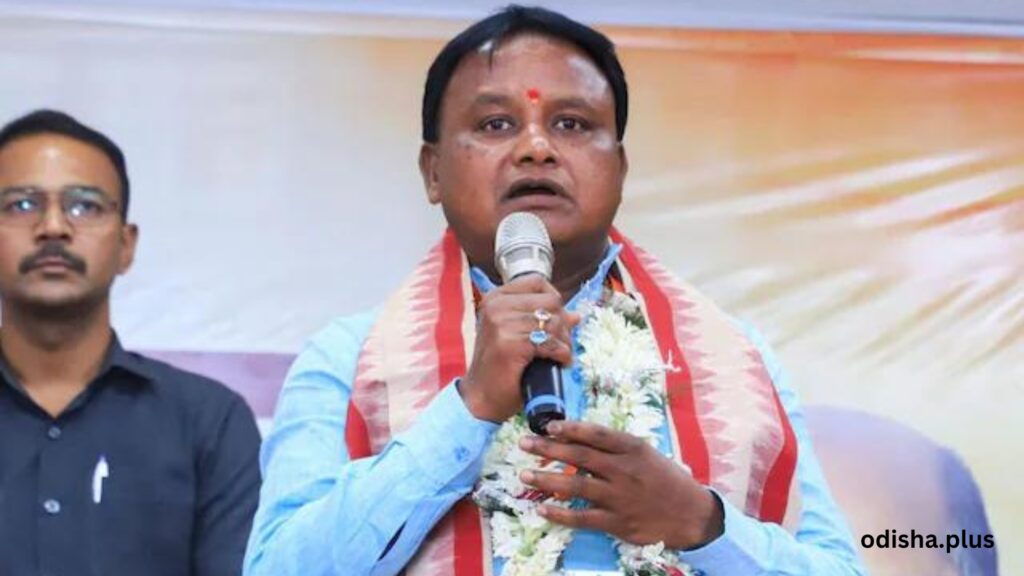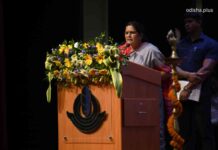Mohan Charan Majhi’s tenure as Chief Minister of Odisha is expected to bring about a new era of governance in the state
Bhaskar Parichha

Mohan Charan Majhi’s appointment as the Chief Minister of Odisha marks a significant shift in the political landscape of the state. As a member of the BJP, his rise to power signifies a growing influence of the party in the region. With his leadership, he is expected to bring about new policies and initiatives that will benefit the people of Odisha.
Majhi’s tenure as Chief Minister is also expected to bring about a new era of governance in the state. With his party’s vision, he is poised to address key issues such as infrastructure development, healthcare, education, and employment opportunities. His leadership is expected to bring about positive change and progress in Odisha.
Predecessor’s Legacy
As he takes on this new role, all eyes are on Mohan Charan Majhi to see how he will lead the state and continue the legacy of his predecessor. With his determination and dedication, he is set to make a mark in the history of Odisha and leave a lasting impact on the state and its people.
Mr. Majhi’s affiliation with the Santali tribe not only represents the BJP’s efforts to garner support from tribal communities in central and eastern India but also underscores the party’s commitment to inclusivity and representation of diverse ethnic groups. By embracing Mr. Majhi as a prominent member of their party, the BJP aims to demonstrate its dedication to addressing the concerns and aspirations of tribal communities.
Furthermore, the BJP’s endorsement of President Droupadi Murmu, who shares a tribal heritage, further exemplifies the party’s commitment to tribal empowerment and representation at the highest levels of government. This move not only showcases the BJP’s recognition of the importance of tribal voices but also serves as a powerful symbol of unity and inclusivity within the party.
Mr. Majhi’s political journey is a testament to his experience and expertise in the field. Starting as an administrator, he gained valuable insights into the workings of the government and the challenges faced by local communities. This hands-on experience allowed him to understand the needs and aspirations of the people he served, which later translated into effective political mobilization.
Connection with Grassroots
His subsequent role as a village sarpanch in the late 1990s further solidified his connection with the grassroot level and deepened his understanding of the issues faced by rural communities. This experience equipped him with the necessary skills to effectively advocate for the rights and welfare of his constituents.
Mr. Majhi’s background as a legislator and political mobilizer, combined with his tribal heritage, makes him a valuable asset for the BJP in their pursuit of securing the support of tribal groups in central and eastern India. His journey from an administrator to a village sarpanch reflects his commitment to public service and his ability to connect with the concerns of the people he represents.
As the BJP continues to prioritize the empowerment of tribal communities, Mr. Majhi’s presence within the party serves as a powerful symbol of their dedication to inclusive governance and representation.
Over-Dependence on Bureaucracy
Mohan Majhi’s appointment as CM Odisha signifies a breakthrough for the BJP, which successfully portrayed the BJD as lacking direction without Naveen Patnaik and highlighted his reliance on the bureaucracy, which gradually eroded the BJD’s second-tier leadership. This over-dependence on the bureaucracy not only affected governance and policy implementation under Mr. Patnaik but also impacted political outreach. With the decline of the Congress, the BJP has emerged as a steadfast alternative to the BJD.
The swearing-in ceremony of Mr. Majhi was marked a return to a degree of political harmony with the BJD, following a bitter and personal campaign that targeted Mr. Patnaik’s lieutenant, VK Pandian, due to his Tamil roots. The positive optics of this event should encourage the BJP to focus on maintaining continuity in some of the BJD’s initiatives in the state. These initiatives have contributed to faster GDP growth, improved service delivery and welfare measures in rural areas, and a more diversified economy that is not solely reliant on agriculture.
Impoverished State
Nevertheless, despite its achievements in alleviating poverty and promoting economic diversity, Odisha continues to face significant challenges and remains one of the most impoverished states in the nation. Despite the efforts made to uplift the state’s economy and improve the living conditions of its people, a considerable segment of the population still resides in destitution.
Odisha has made commendable progress in various sectors, such as agriculture, infrastructure development, and social welfare programs. The state has implemented initiatives to enhance agricultural productivity, including the promotion of modern farming techniques, irrigation facilities, and the provision of subsidies to farmers. Additionally, the government has invested in the development of infrastructure, such as roads, bridges, and power supply, to facilitate economic growth and connectivity.
Furthermore, Odisha has implemented several social welfare programs aimed at improving the lives of its citizens. These programs include schemes for healthcare, education, and employment generation, which have contributed to the overall well-being of the population. The state has also focused on empowering marginalized communities and promoting gender equality through various initiatives.
However, despite these efforts, Odisha continues to grapple with deep-rooted issues that hinder its progress. The state faces challenges such as inadequate access to quality education, healthcare facilities, and employment opportunities, particularly in rural areas. The lack of proper infrastructure, including roads and transportation facilities, further exacerbates the problem, making it difficult for people to access basic services and markets.
Moreover, natural disasters, such as cyclones and floods, frequently affect the state, causing significant damage to infrastructure, agriculture, and livelihoods. These disasters not only disrupt the state’s economy but also push vulnerable communities further into poverty, making it challenging for them to recover and rebuild their lives.
Additionally, Odisha’s economy heavily relies on agriculture, which is susceptible to various factors such as climate change, fluctuating market prices, and limited access to credit and technology. This dependency on agriculture, coupled with the lack of diversification in the economy, hampers the state’s ability to generate sustainable and inclusive growth.
Comprehensive Strategies
The persistence of poverty and destitution among a considerable segment of the population highlights the need for sustained efforts, targeted interventions, and comprehensive strategies to address the underlying issues and uplift the lives of the people in Odisha.
Mr. Majhi and his team are now tasked with navigating this delicate political landscape and ensuring that the progress made under Mr. Patnaik’s leadership continues. They must work to build on the foundation of peace and development that has been established, while also addressing any lingering tensions or challenges that may arise.
It is crucial for the BJP to understand that the extension of Mr. Patnaik’s term is not a rejection of their ideology, but rather a recognition of the positive impact he has had on the state. The party must resist the temptation to exploit any potential unrest or division for political gain, and instead focus on working collaboratively with the current administration to further the interests of the people of Odisha.
Mr. Majhi and his team must approach this situation with diplomacy, tact, and a commitment to the well-being of all residents of Odisha. By prioritizing unity, progress, and cooperation, they can ensure that the state continues on its path towards peace and prosperity, regardless of any political differences that may exist.
(The author is a senior journalist and columnist. Views expressed are personal)

























